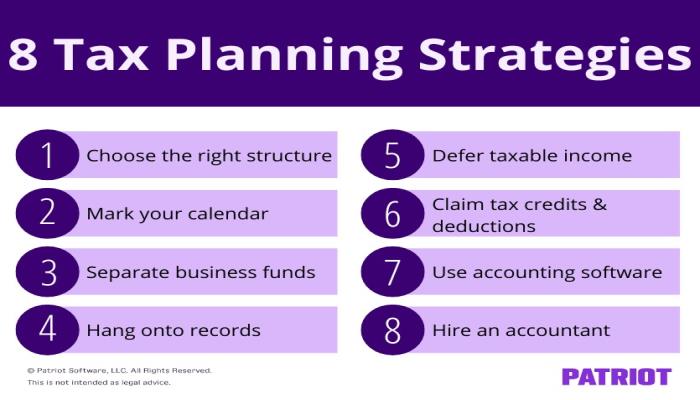Your Tax Filing Strategy in Relation to Business Investments

In particular, freelancers and self-employed professionals may find tax season to be a particularly trying time. Independent contractors encounter distinct obstacles in the process of optimizing their tax savings and completing their tax returns, in contrast to conventional employees who are issued a W-2 form. Business investments constitute a pivotal element that may exert a substantial influence on their tax filing strategy. Freelancers can maximize their a 1099 tax savings by arriving at well-informed judgments regarding the tax ramifications of business investments. This article will examine how contractors can effectively navigate the complexities arising from business investments and their impact on tax filing strategies.
Leveraging deductions to maximize tax savings
Tax savings maximization via deductions is a significant advantage of business investments for independent contractors. Through the deductibility of eligible business expenses from their overall income, freelancers can decrease their taxable income. Freelancers have the potential to decrease their overall tax liability by strategically allocating funds towards business-related investments that augment their deductions.
Freelancers may employ a range of instruments, including tax deduction calculators and self-employed tax calculators, in order to ascertain the magnitude of tax savings resulting from business investments. Based on their business expenses—including home office deductions, office supplies, equipment, software subscriptions, and marketing costs—these online resources assist freelancers in estimating their prospective tax liabilities. Freelancers can obtain a more comprehensive understanding of the impact their business investments will have on their tax self-employment taxes savings by entering the specifics of their funding into these calculators.
Tax payments quarterly in 2023
The periodic payment of taxes is an additional factor that freelancers must contemplate. Freelancers are obligated to make annual tax payments, in contrast to traditional employees who have this responsibility deducted from their paychecks. In order to prevent tax authority penalties and interest charges, it is vital that these quarterly tax payments be made.
Freelancers ought to be cognizant of the quarterly tax payment due dates entering into force in 2023. The quarterly due dates established by the Internal Revenue Service (IRS) are as follows: April 15th, June 15th, September 15th, and January 15th respective months thereafter. Freelancers can mitigate avoidable financial burden and guarantee adherence to tax regulations by premeditating and allocating funds for these quarterly invoices.
Quarterly tax payments in relation to investments in businesses
Entrepreneurial quarterly tax payments may be substantially impacted by business investments. The fluctuating income of contractors necessitates careful estimation of their tax liability due to business investments. Due to this uncertainty, quarterly tax payments may be underpaid or overpaid, both of which are potentially detrimental.
Imposal of penalties and interest charges by the IRS may ensue from quarterly tax underpayment. In order to prevent these penalties, freelancers must ensure they meet their tax obligations in a punctual manner and accurately estimate their tax liability in relation to their anticipated income. However, excessive quarterly tax payments impede freelancers’ ability to invest further in their businesses by binding up their funds unnecessarily.
Regular reviews of business investments, income projections, and tax obligations are essential for freelancers to effectively navigate these intricacies. Freelancers can enhance their tax strategy regarding quarterly payments by seeking guidance from tax experts or employing self-employed tax calculators. By utilizing these tools, independent contractors can augment their quarterly compensation in accordance with the estimated tax liability they have incurred on business investments.
Tax filing and savings maximization strategies
To optimize their tax savings and expedite the tax filing process, freelancers may utilize a variety of tactics. Key considerations include the following:
One essential aspect in optimizing deductions is the maintenance of precise and well-structured records pertaining to business expenditures. In order to substantiate their tax claims, freelancers ought to maintain receipts, invoices, and other pertinent documentation.
- In order to maintain a distinct demarcation between personal and business expenditures, it is advisable for freelancers to create individual bank accounts and credit cards for their enterprise. Eliminating the possibility of an audit is accomplished through the simplification of the process of determining which deductions qualify.
- Seek Guidance from Tax Experts specializing in self-employment taxes is a valuable resource for freelancers to consult. Assistance in navigating the intricacies of tax laws and regulations can be obtained from these knowledgeable individuals.
Individual Retirement Accounts (IRAs) and Simplified Employee Pension (SEP) IRAs are retirement investment vehicles that freelancers ought to contemplate. In addition to offering tax benefits, these retirement plans assist independent contractors in safeguarding their economical prospects.
In summary
The tax filing strategies of freelancers are highly influenced by business investments. Freelancers can optimize their tax savings via deductions by strategically allocating resources to their work. Freelancers can enhance their risk assessment and strategic planning by employing resources such as tax deduction calculators and self-employed tax calculators. Finally, it is imperative that entrepreneurs precisely calculate their tax liability on the basis of their business investments and remain cognizant of quarterly tax payments. Freelancers can enhance the efficiency of their tax filing process and maximize their tax savings through the implementation of various strategies. These include maintaining comprehensive records, distinguishing between personal and business expenses, seeking guidance from tax experts, and doing retirement planning.


